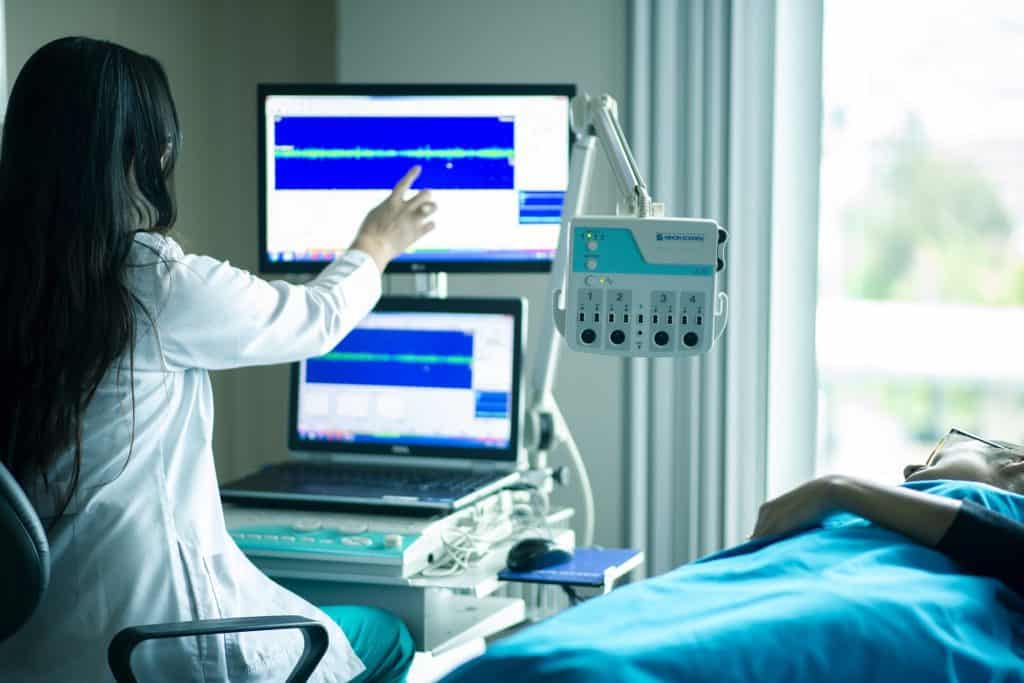Alcoholism and Brain
Alcohol interferes with the brain’s communication pathways and can affect the way the brain looks and works. Alcohol makes it harder for the brain areas controlling balance, memory, speech, and judgment to do their jobs, resulting in a higher likelihood of injuries and other negative outcomes. Long-term, heavy drinking causes alterations in the neurons, such as reductions in their size.
One significant consequence of alcohol misuse is alcohol blackouts. Blackouts are gaps in a person’s memory for events that occurred while they were intoxicated. These gaps happen when a person drinks enough alcohol to temporarily block the transfer of memories from short-term to long-term storage—known as memory consolidation—in a brain area called the hippocampus.
Continuing to drink despite clear signs of significant impairments can result in an alcohol overdose. An alcohol overdose occurs when there is so much alcohol in the bloodstream that areas of the brain controlling basic life-support functions—such as breathing, heart rate, and temperature control—begin to shut down.
Symptoms of alcohol overdose include mental confusion, difficulty remaining conscious, vomiting, seizure, trouble breathing, slow heart rate, clammy skin, dulled responses such as no gag reflex (which prevents choking), and extremely low body temperature. Alcohol overdose can lead to permanent brain damage or death. [1]


Get Your Life Back
Find Hope & Recovery. Get Safe Comfortable Detox, Addiction Rehab & Dual Diagnosis High-Quality Care.
Hotline(844) 597-1011Korsakoff Syndrome
Korsakoff syndrome is most commonly seen in the context of chronic alcohol abuse and is thought to be on the spectrum with Wernicke encephalopathy, however, Wernicke encephalopathy is acute and often reversible while Korsakoff syndrome is chronic and may be irreversible. [2]
Korsakoff syndrome is a chronic neuropsychiatric syndrome that is caused by the deficiency of thiamine, also known as vitamin B1. This deficiency leads to damage to multiple areas of the brain, which in turn causes amnesia and confusion.
Causes and Risk Factors
Korsakoff syndrome usually results from a deficiency of thiamine (vitamin B1), which may be caused by:
- Alcohol abuse
- Dietary deficiencies
- Prolonged vomiting
- Eating disorders
- Effects of chemotherapy
Symptoms
According to Johns Hopkins Medicine, most patients first develop a delirium, marked by confabulation, gait disorder, and problems with memory and disorientation (that is usually called a Wernicke’s encephalopathy). When this delirium clears, a profound disorder of memory remains. Patients have great difficulty learning and retaining new information as well as problems recalling memories from the recent past. [3]
Organic Brain Syndrome Alcohol Types
Brain impairment in alcoholics may be conceptualized as two clinically and neuropathologically distinguishable organic brain syndromes: alcohol amnestic disorder or Korsakoff’s psychosis (KP) and alcoholic dementia. Alcoholic organic brain disease may result from two interacting pathophysiological processes: nutritional (thiamine) deficiency and ethanol neurotoxicity. Subcortical periventricular lesions associated with KP result primarily from thiamine deficiency, whereas ethanol neurotoxicity and various secondary effects of alcoholism may contribute to the cortical neuropathological changes associated with alcoholic dementia. [4]
Get Help. Get Better. Get Your Life Back.
Searching for Accredited Drug and Alcohol Rehab Centers Near You?
Even if you have failed previously and relapsed, or are in the middle of a difficult crisis, we stand ready to support you. Our trusted behavioral health specialists will not give up on you. When you feel ready or just want someone to speak to about therapy alternatives to change your life call us. Even if we cannot assist you, we will lead you to wherever you can get support. There is no obligation. Call our hotline today.
(844) 597-1011Alcoholic Organic Brain Syndrome Symptoms
Dementia
Long-term heavy alcohol consumption causes brain abnormalities and damages cognitive functioning. Several terms have been used to describe these effects, including alcohol-related dementia, alcohol-induced dementia, and alcoholic dementia. [5]
The signs of alcoholic dementia a person exhibits may vary depending on the type of alcohol dementia. Some common symptoms of alcohol dementia include:
- Unexplained changes in personality or character
- Lying without realizing it
- Abnormal eye movement
- Decreased or abnormal reflexes
- Fabricating stories
- Memory loss
- Muscle weakness
- Problems with motor movement and coordination
- Loss of speech
- Difficulties learning
- The trouble with complex problem-solving
- Getting lost on familiar paths
- Difficulties completing simple tasks, like following a cooking recipe
- Confusion regarding the place or time the person is in
- Problems appropriately stringing sentences or words together
Delirium Tremens (Alcohol Withdrawal) Psychosis
Delirium tremens psychosis occurs during alcohol withdrawal syndrome. Individuals will start to experience delirium within 4 to 7 days of quitting alcohol consumption. Symptoms of the condition will include:
- Sensitivity to Sensory inputs (lights, sounds, touch, etc.)
- Disorientation
- Severe Confusion, Fear, or Agitation
- Visual and Auditory Hallucinations
- Persecutory Delusions (the sensation of being chased)
- High Blood Pressure, Temperature, and Pulse
- Mood Swings
Individuals with this condition need medical support, and a supervised program can help them comfortably detox. Moreover, sedatives like benzodiazepines may also be advisable. If you disregard delirium tremens psychosis, it can become life-threatening. [6]
First-class Facilities & Amenities
World-class High-Quality Addiction & Mental Health Rehabilitation Treatment
Rehab Centers TourRenowned Addiction Centers. Serene Private Facilities. Inpatient rehab programs vary.
Addiction Helpline(844) 597-1011Proven recovery success experience, backed by a Team w/ History of:
15+
Years of Unified Experience
100s
5-Star Reviews Across Our Centers
10K
Recovery Success Stories Across Our Network
- Low Patient to Therapist Ratio
- Onsite Medical Detox Center
- Comprehensive Dual-Diagnosis Treatment
- Complimentary Family & Alumni Programs
- Coaching, Recovery & Personal Development Events
Alcoholic Organic Brain Syndrome Diagnosis
Alcoholic organic brain syndrome is a clinical diagnosis representing a physician’s best judgment about the cause of a person’s symptoms. There are no specific laboratory tests or neuroimaging procedures to confirm that a person has this disorder. The syndrome may sometimes be hard to identify because it may be masked by symptoms of other conditions common among those who misuse alcohol, including alcohol intoxication or alcohol withdrawal, infection, or head injury.

Tests depend on the disorder, but may include:
- Blood tests
- Electroencephalogram (EEG)
- Head CT scan
- Head MRI
- Lumbar puncture (spinal tap)
Alcoholic Organic Brain Syndrome Treatment
Treatment depends on the underlying condition. Many conditions are treated mainly with rehabilitation and supportive care to help the person with activities lost due to areas where brain function is affected. Medicines may be needed to reduce aggressive behaviors that can occur with some of the conditions.
Abstaining from alcohol and maintaining a healthy diet is a cornerstone of effective long-term treatment. For those suffering from addiction or alcoholism, the We Level Up treatment center is here. As a licensed and accredited rehabilitation center, we are dedicated to helping you meet your goals, one day at a time.
World-class, Accredited, 5-Star Reviewed, Effective Addiction & Mental Health Programs. Complete Behavioral Health Inpatient Rehab, Detox plus Co-occuring Disorders Therapy.
CALL(844) 597-1011End the Addiction Pain. End the Emotional Rollercoaster. Get Your Life Back. Start Drug, Alcohol & Dual Diagnosis Mental Health Treatment Now. Get Free No-obligation Guidance by Substance Abuse Specialists Who Understand Addiction & Mental Health Recovery & Know How to Help.
Alcohol Treatment Program Near Me
We Level Up treatment center can help with inpatient therapy programs exclusively. Because each client is different and requires unique, comprehensive care according to their situation, our staff of well-trained physicians and nurses first begin the client relationship with a detailed one-on-one assessment.
Detox
Withdrawal from alcohol is an important first step to overcoming your alcohol-related problems. However, withdrawal isn’t an effective treatment by itself. You’ll need further treatment and support to help you in the long term. [7]
There are two significant signs of alcohol addiction: tolerance and withdrawal. Alcohol addiction is a dangerous condition because it can ultimately become life-threatening. So, alcohol detox allows the body to eliminate all alcohol in the body and return to its usual functioning. An individual who has been struggling with a moderate to severe alcohol use disorder (alcohol addiction) has a significant likelihood of developing withdrawal symptoms and could benefit from the help of a detox program.
The longer and heavier the drinking, the more prolonged and more severe detox will be. For this reason, going through the process sooner than later, and getting help, is critical to recovery.
Once fully admitted and evaluated, the 2nd stage of detox gets underway: stabilization. Based on the data provided during the admissions process, patient feedback, and the symptoms observed; our experienced team of medical addiction professionals will provide care to keep the patient stable and as comfortable as possible.
Alcohol detox can be dangerous, mainly if you do it without the help of a professional. Because delirium tremens and other withdrawal symptoms that may afflict the detoxing patient are hazardous and fatal. Therefore, it is advisable to detox in a rehab center to access qualified professionals who can manage comfortable alcohol detox and withdrawal complexities.
Cognitive Behavioral Therapy
Cognitive-behavioral therapy (CBT) is a widely used treatment for alcohol abuse and addiction to help individuals identify negative thought patterns, emotions, and problematic behaviors and learn how to make healthy lifestyle changes that decrease the urges to drink alcohol and use other substances; paying particular attention to symptoms of psychosis, depression, and other co-existing mental health-related problems or dual diagnosis that are exacerbated by stress.
Counseling Services
Individual, group and family counseling services are offered in the majority of mental health and substance abuse treatment programs to “get to the root of the problems”, improve communications and relationships, and motivate the abuser toward positive changes. . The structured guidance of a counselor helps the patient stay on track and in the right perspectives as they strive to achieve their potentials and goals of recovery.

Increasing awareness of high-risk situations and warning signs and developing avoidance strategies and coping skills for handling those situations is an important part of treatment known as relapse prevention and knowing what to do should relapse occur is equally important to ensure any long-term recovery success.
Our FREE 24-hour Hotline can help you with the resources for alcoholic organic brain syndrome and alcoholism itself. Get a free consultation for your best-fitting treatment programs along with free rehab insurance verification. Call We Level Up today and speak with one of our addiction specialists to check your rehab insurance coverage and benefits.
We Level Up addiction counselors will discuss the average cost of the program based on the personalized treatment that works best for you.
Experience Transformative Recovery at We Level Up Treatment Centers.
See our authentic success stories. Get inspired. Get the help you deserve.
Start a New Life
Begin with a free call to an addiction & behavioral health treatment advisor. Learn more about our dual-diagnosis programs. The We Level Up Treatment Center Network delivers recovery programs that vary by each treatment facility. Call to learn more.
- Personalized Care
- Caring Accountable Staff
- World-class Amenities
- Licensed & Accredited
- Renowned w/ 100s 5-Star Reviews
We’ll Call You
Sources:
[1] Alcohol and the Brain: An Overview – National Institute on Alcohol Abuse and Alcoholism
[2] Korsakoff Syndrome – National Center for Biotechnology Information
[3] Korsakoff’s Syndrome – https://www.hopkinsmedicine.org/neurology_neurosurgery/centers_clinics/memory_disorders/conditions/korsakoffs_syndrome.html
[4] Alcoholic organic brain disease: nosology and pathophysiologic mechanisms – National Center for Biotechnology Information
[5] Alcohol-related dementia – Oxford University Press – https://oxfordmedicine.com/view/10.1093/med/9780199696758.001.0001/med-9780199696758-chapter-51
[6] Alcohol-Induced Psychosis by We Level Up New Jersey
[7] Alcohol Misuse – https://www.nhs.uk/conditions/alcohol-misuse/treatment/


